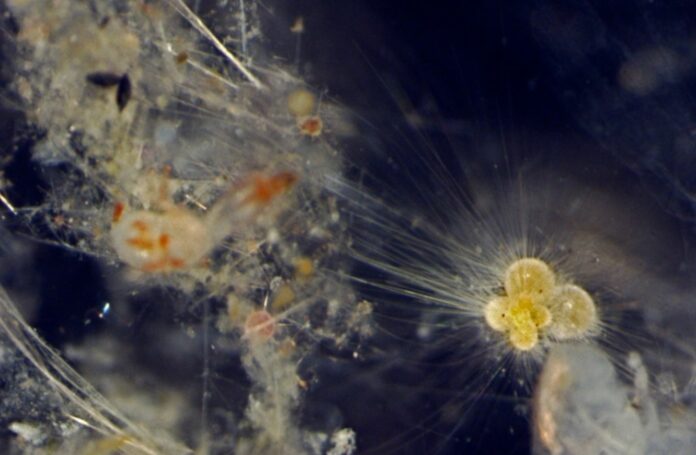Prior to this discovery, scientists believed that the increase in oxygen levels was due to photosynthesis by algae and plants in the ocean, where oxygen was generated as a byproduct and released into the atmosphere.
But a group of researchers from the University of Leeds says that the photosynthesis theory doesn’t fully explain the rise in oxygen levels.
In an article published today in the journal Nature Geoscience, the researchers suggest that as the algae and plants perished, bacteria would have eaten them, depleting the atmosphere of oxygen.
So, the amount of oxygen in the air was equal to the difference between how much oxygen was made by photosynthesis and how much oxygen was lost when dead plants and algae broke down.
Scientists say that the process of decay must have been slowed down or stopped so that the amount of oxygen in the air could go up. This occurred as a result of mineral-organic carbon preservation, in which minerals in the seas, especially iron particles, attach onto the dead algae and plants and prevent degradation and breakdown.
The end outcome was unrestricted growth in oxygen levels.
“Scientists have known for many years that mineral particles can bind with dead algae and plants,” points out lead author Caroline Peacock, “making them less susceptible to attack by microbes and shielding them from the decay process, but whether mineral particles helped fuel the rise of atmospheric oxygen had never been tested.”
The scientists proceeded to verify their hypothesis by examining established geological phenomena during periods when concentrations of mineral particles were expected to be elevated. One such instance is the formation of continents, which led to a larger landmass from which minerals, including iron particles, would have been transported by wind or water into the oceans.
During the Great Oxidation Event, which happened 2.4 billion years ago, the amount of oxygen in the air went up. This was at the same time as the continents were gradually forming, which would have increased the amount of mineral particles that flowed into the oceans.
“The increase in mineral particles in the oceans would have reduced the rate at which algae was being decomposed. This had a major impact on oxygen levels, allowing them to rise,” adds author Dr. Mingyu Zhao.
The expansion of atmospheric oxygen had a significant impact on the emergence of life. It led to the emergence of more sophisticated species that transitioned from living in the water to living on land.
In addition to providing a better knowledge of how the Earth’s atmosphere became oxygenated, Professor Peacock believes that the research also provides a window into the circumstances that would be required for sophisticated life to emerge on other worlds.
“Our investigation is providing a new understanding of how the Earth’s atmosphere became oxygen rich, which eventually enabled complex life forms to evolve,” she adds.
“That is giving us an important insight into the conditions that need to exist on other planets for intelligent life to develop.
“The existence of water on a planet is only part of the story. There needs to be dry land to provide a source of mineral particles that will eventually end up in the oceans.”
Image Credit: Dr Tracy Aze, University of Leeds
